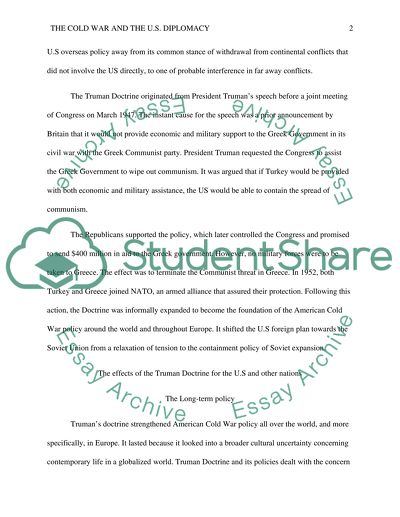Cite this document
(“The Cold War and U.S. Diplomacy Essay Example | Topics and Well Written Essays - 1000 words - 1”, n.d.)
Retrieved from https://studentshare.org/history/1460724-the-cold-war-and-us-diplomacy
Retrieved from https://studentshare.org/history/1460724-the-cold-war-and-us-diplomacy
(The Cold War and U.S. Diplomacy Essay Example | Topics and Well Written Essays - 1000 Words - 1)
https://studentshare.org/history/1460724-the-cold-war-and-us-diplomacy.
https://studentshare.org/history/1460724-the-cold-war-and-us-diplomacy.
“The Cold War and U.S. Diplomacy Essay Example | Topics and Well Written Essays - 1000 Words - 1”, n.d. https://studentshare.org/history/1460724-the-cold-war-and-us-diplomacy.


